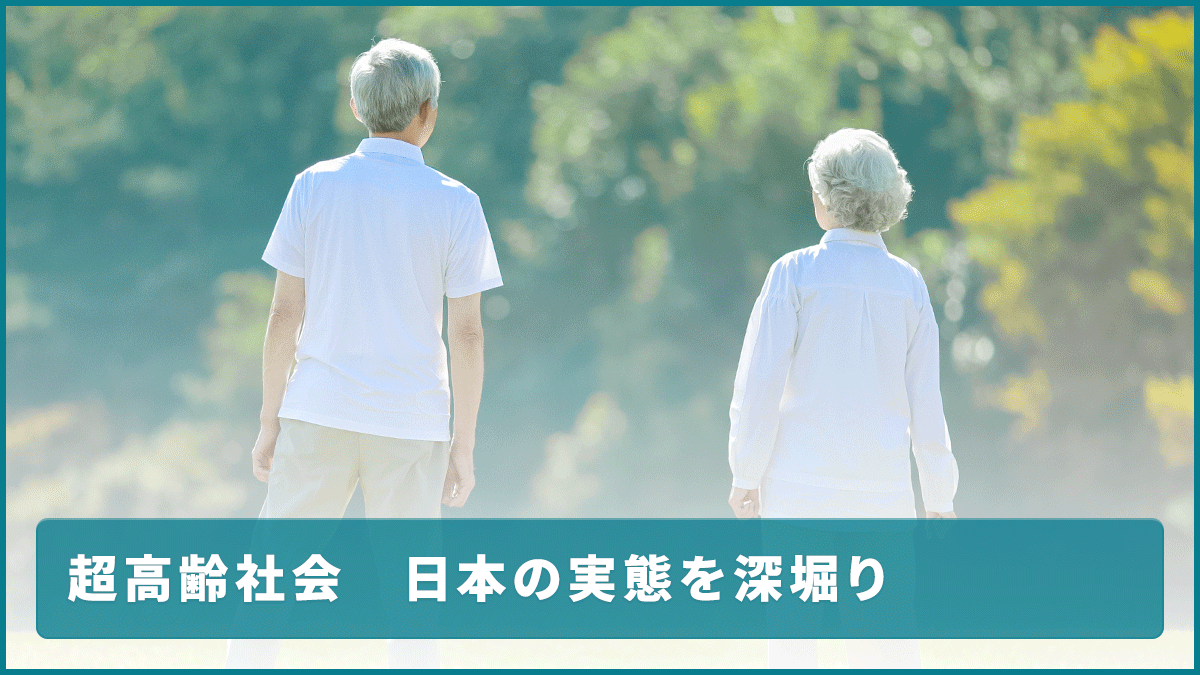Deep Dive into Japan's Super Aging Society

This article shows you the state of Japan’s aging population using data from both Japan and overseas.
Japan's Aging Population Is Accelerating
An “aging society” refers to a society in which the proportion of the elderly aged 65 or older exceeds 7% of the population.
In 1970, Japan became an “aging society”, with the aging rate exceeding 7%.
An “aged society” refers to a society in which the proportion of the elderly aged 65 or older exceeds 14% of the population.
In 1994, Japan entered an aged society.
A “super-aged society” refers to a society in which the proportion of the elderly aged 65 or older exceeds 21% of the population.
In 2007, Japan entered a super-aged society.
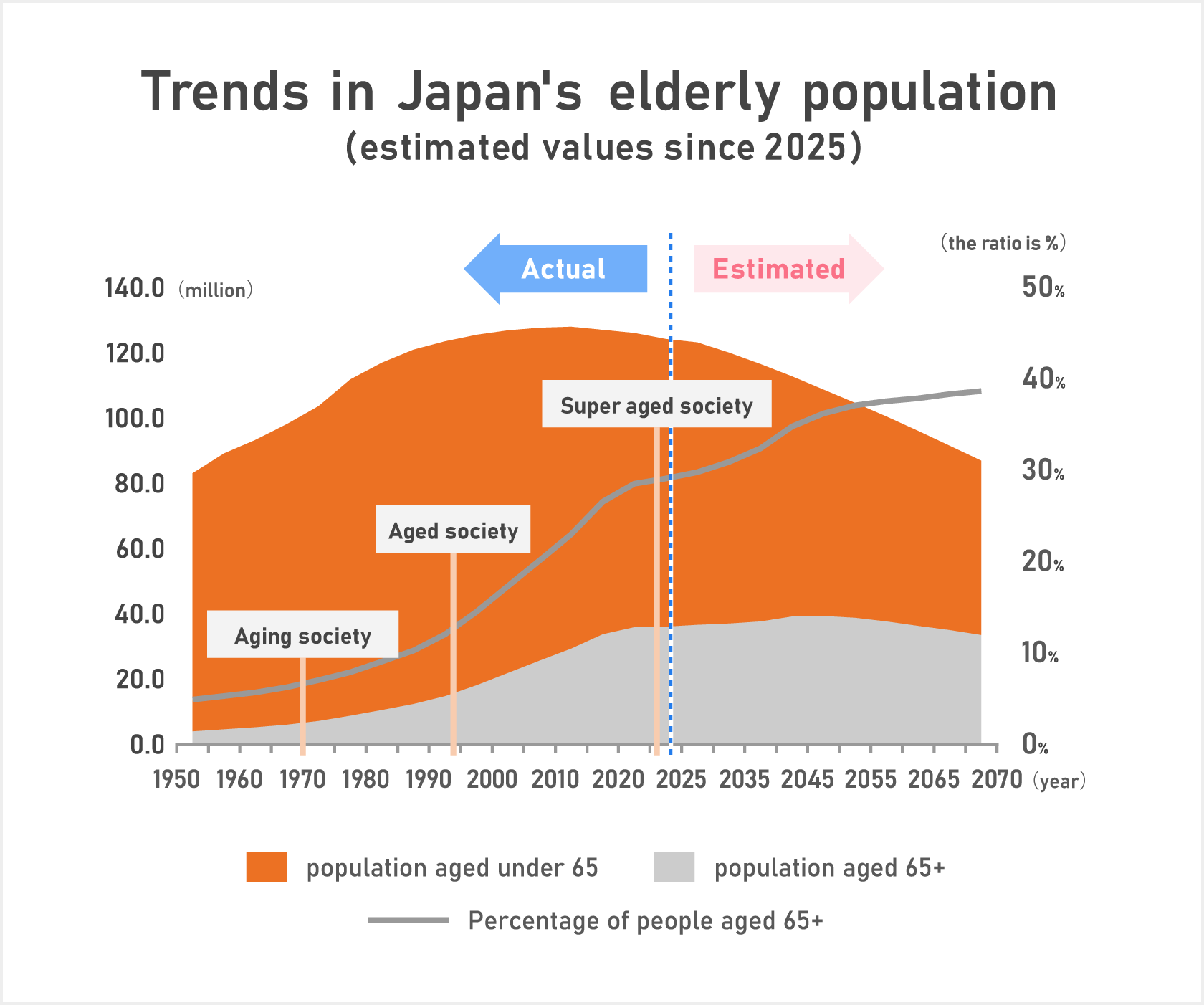
What is the global comparison?
What about the global level?
According to the following data, Japan has the highest percentage of people aged 65 or older in the world in 2024 in selected countries.
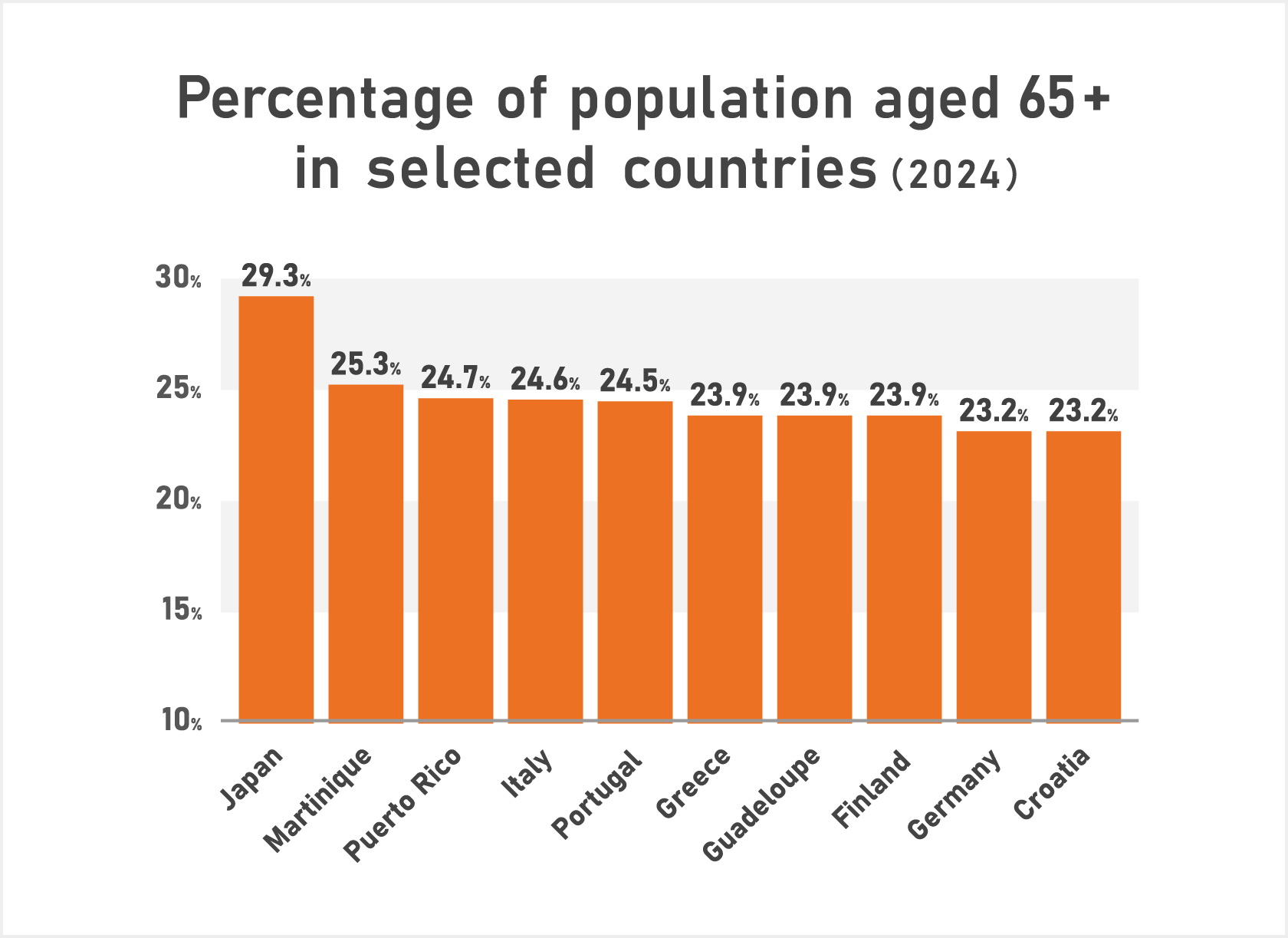
What is the employment situation of people aged 65 and over?
Next, look at the employment situation of elderly people.
The following graph shows the employment rate of elderly people in major countries, and we can see that Japan has a relatively high rate of employment.
The employment rate of the elderly seems to be increasing worldwide. In Japan, it is 25.2%, which means that 1 in 4 people aged 65 or older are employed.
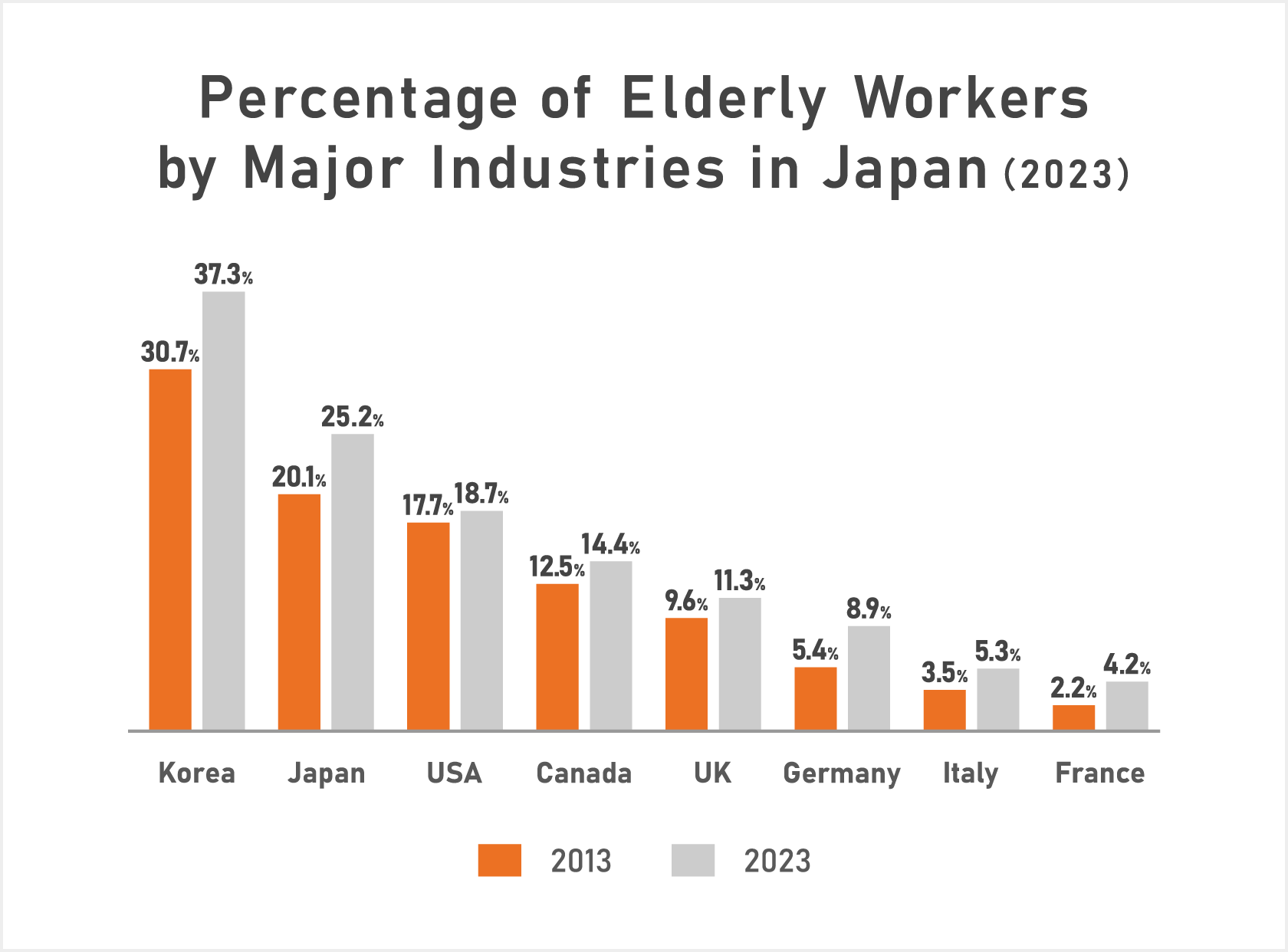
So, what kind of occupation are they engaged in?
The graph below shows the percentage of elderly people aged 65 or over by industry. As you can see, there are considerable differences by industry. In agriculture and forestry, the majority (52.9%) of the workers are aged 65 or over, while in the information and communications industry, the percentage is only 2.5%.
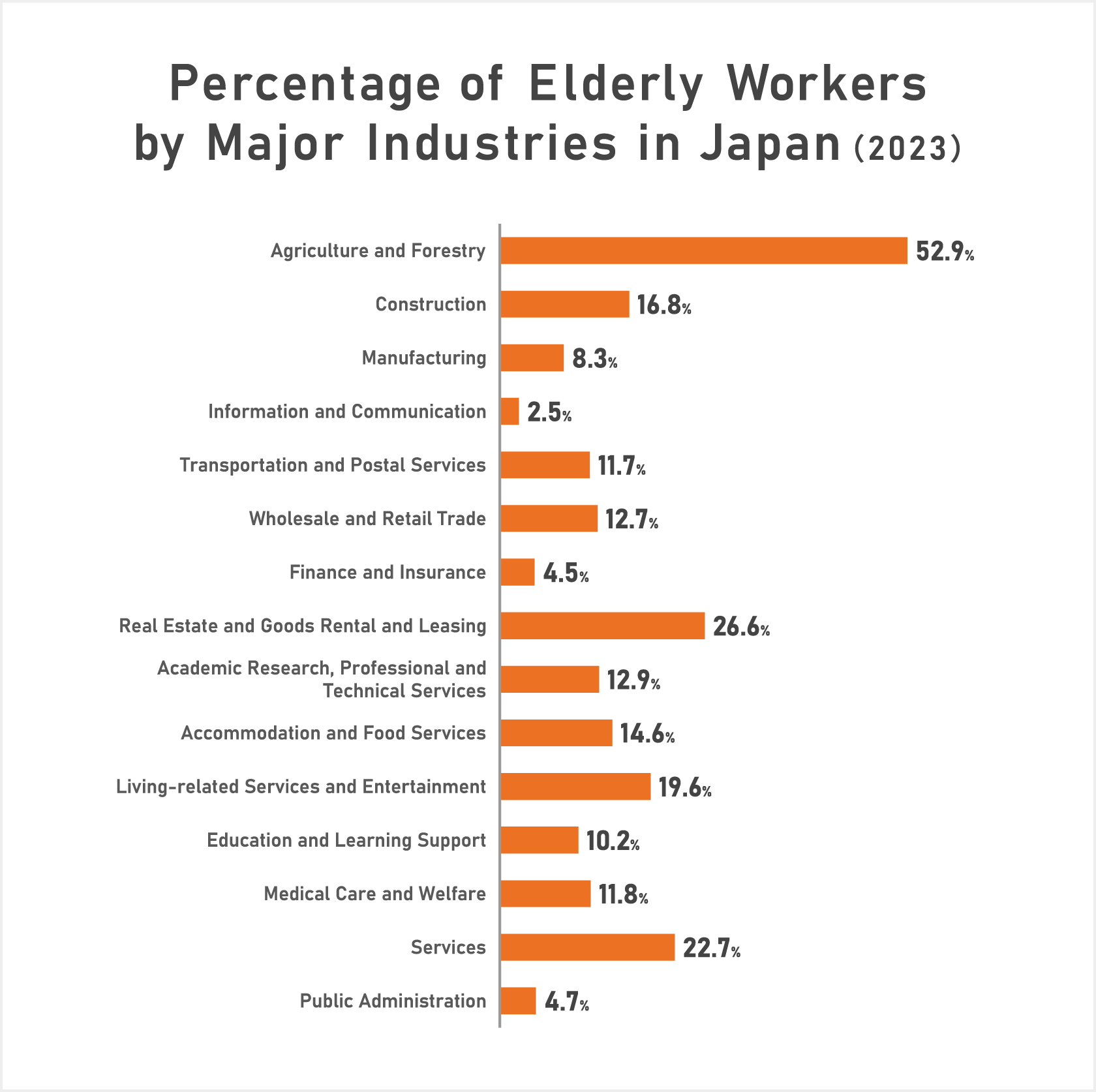
As opinion surveys show that the conventional definition of elderly people aged 65 or over is becoming increasingly negative, a new definition of elderly people aged 75 or over has been proposed. The Outline of Measures for the Aging Society also states that "The general tendency to uniformly regard people over the age of 65 as "elderly" is no longer realistic in light of the current situation." 1
1 Source: Cabinet Office "White Paper on the Aging Society 2024"
Author: Daisuke Yabuuchi, Financial Wellbeing Department, Nomura Holdings Co., Ltd.
Last Updated and Published in English: September 26, 2025
Original publication date: February 14, 2024
This column has been prepared by Nomura Securities Co., Ltd. based on data deemed reliable as of September 2025, and is not guaranteed to be accurate or complete. It is subject to change in the future. All rights to any part of this document belong to Nomura Securities Co., Ltd., and may not be reproduced or transmitted by any means, electronic or mechanical, for any purpose without permission.



